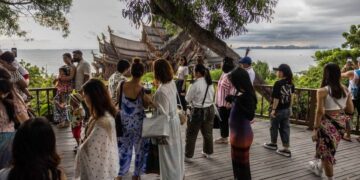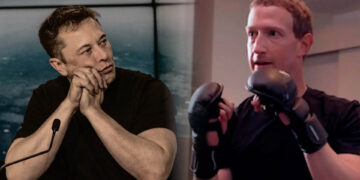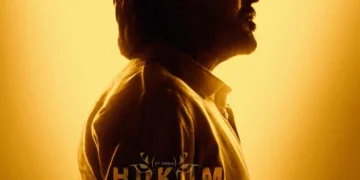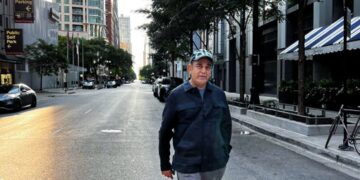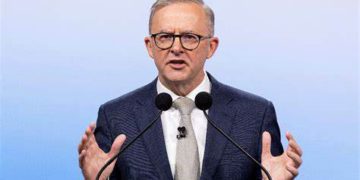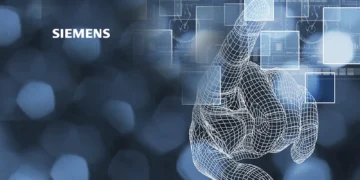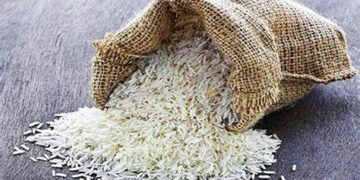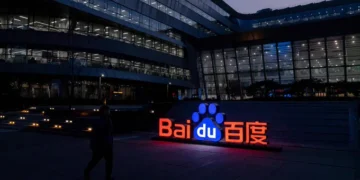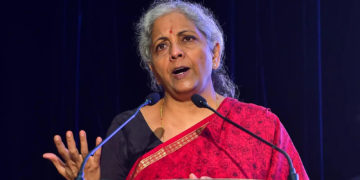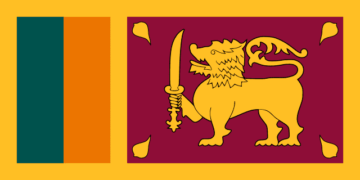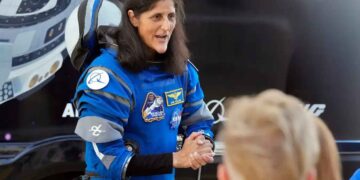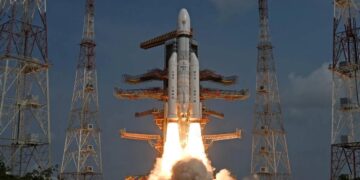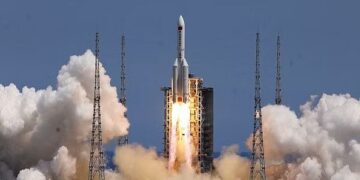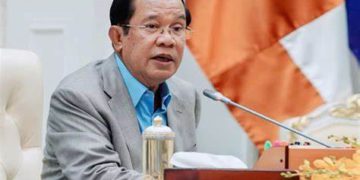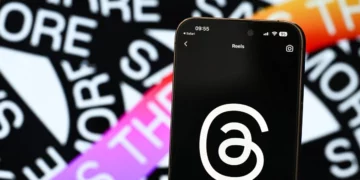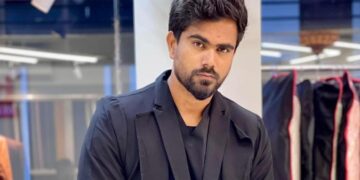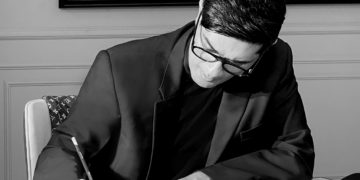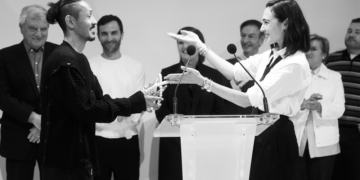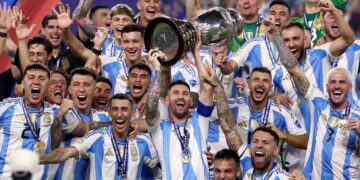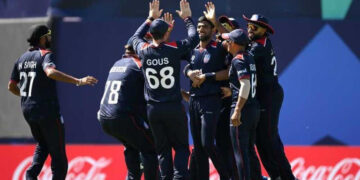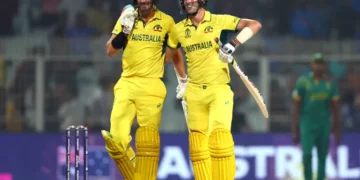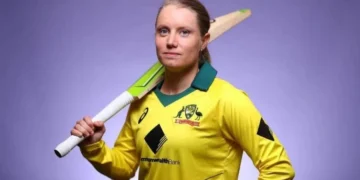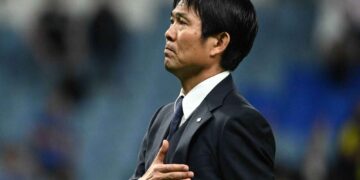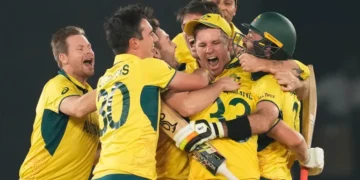His name resonates with a journey that traverses not only the lush landscapes of Kerala but also weaves through a captivating tapestry of perseverance, leadership, and intelligence. Navigating the intricate realms of diplomacy and the corridors of power, Mr. MP Joseph IAS has emerged with a compelling tale that demands to be heard. Ladies and gentlemen. A man who has observed the world from the highest echelons, yet remains firmly rooted in the soul of his beloved Kerala – Mr. MP Joseph IAS! As we engage in this interview, let us unravel the profound insights and experiences that have shaped the remarkable journey of this distinguished individual.
Your career defies convention from the stoic ranks of the IAS to the vibrant tapestry of the United Nations; you’ve worn many hats, each leaving an indelible mark. Is there a thread that binds these seemingly disparate chapters together?
Firstly, the honor is entirely mine. To be invited by Star Media Network for a chat like this is absolutely an honor. I feel humbled. Thank you, Starfold Media. Thank you, Elvis, for having me here. This evening’s telecast is greatly appreciated. Secondly, I don’t think the IAS is a very stoic network. There are stoic people in it, as elsewhere, and it’s been an honor for me. I joined the IAS early, after the IND P service for one year. I was at the P service, then I left because I’m not really cut out to be a policeman, so I wrote again and made it to the IAS. I was a top-ranker from Kerala in my batch and the youngest. So, it was a learning experience. You realize how a system functions, how the government functions. And then, of course, I moved to the State Bank of India as a Probationary Officer for banking first and administration next. Administration can mean many different aspects, from being the Mayor of Kochi to the District Collector of Kochi when the Pope came in 1985, to being Sub-Collector, Trur, handling three pums without any serious incidents, not because of me but by the grace of God. Then, I worked as a Labor Commissioner for perhaps the longest time, never for anybody certainly in Kerala, in one of the times when the trade unions were holding the entire state to ransom; they were very powerful. So, at that time, managing the trade unions and the relationship between employers and employees was not an easy thing. Perhaps that gave me the sort of sense of the ability to negotiate your way through, to reach a good settlement, which would be a win-win for everybody. Perhaps that led me to the UN. Though, of course, it is not perhaps the many years as a Labor Commissioner in Kerala that led me to the UN and the International Labor Organization. The UN is a very diplomatic ecosystem; diplomacy rules there because you have so many countries that are part of it, and it’s very important to ensure that all countries stay together. The common thread, I suppose, in all this, as you asked me, is perhaps I think involvement with people’s issues. Whether it is banking – the State Bank of India was a very down-to-earth bank then and now; it went forward to rural areas. Profit was certainly a motor, but social banking, helping people, was the motto then. The police, when also, to a large extent, you interact with people, and then the administrative service. So, the common thread would be, I think, being able to work within society, understanding the problems of individuals in society because the problems of individuals in society are really the problems of the society itself – trying to find solutions for them that are acceptable to everybody, negotiating and ending disputes. And then, of course, the UN, which is a multilateral organization. So perhaps the thread in all this, and even in the UN where I was working largely on areas of child labor, children’s education, skills development for youth, income generation, self-improvement, etc., where the social thread runs through. Therefore, the move to politics was a very easy step, I see. It was, I would say, a very logical step, especially considering that my father-in-law was Mr. K.M. I saw for the first time that if you’re in political power, you can do much more for individuals of society, for people, solve their problems than even a bureaucrat or somebody in the IAS can. I realized that there’s such tremendous power in a democratic system that a politician, with will, can help hundreds of thousands of people. Therefore, the move to politics was a natural step.
Can you provide a brief overview of the plot and main themes explored in “My Driver Tong and Other Tall Tales From a Post-Pot Contemporary Cambodia”?
That was my first complete book. It is a travelogue. I spent seven years in Cambodia as part of my work in the UN. Cambodia is very similar to Kerala in many ways; it is like the size of Kerala in Southeast Asia. They have state boat races, they eat rice in the morning, afternoon, and evening, similar to Kerala. Breakfast is rice, and traditionally they call it “ki,” which was amazing and unbelievable for me. Another surprising thing was that Cambodia has months of the year similar to Kerala. I have traveled to 98 countries, and nowhere else have I come across the same months as in Kerala. Cambodia has similar months, and it felt like visiting a country that was somewhere in the back of my mind. The people are beautiful, very nice, very gentle, always smiling. In Cambodia, I learned to laugh, smile, and break away from the stoicism of the IAS where we refused to laugh. So, I thought I should introduce Cambodia to the world, especially to India and Kerala. That’s the book, “My Driver Tong and Other Tall Tales From a Post-Pot Contemporary Cambodia.”
The post-Pot in the title refers to Pol Pot, who was a dictator and an extreme communist. He took over the reins of power and systematically killed about 1.7 million people, nearly one-third of the population. Cambodia had a tragic history, but the people were happy and innocent. The book introduces about eight or ten characters and tries to explain Cambodia to the world. The main character is my driver, Tong, who was with me for four or five years. I couldn’t determine if he was part of the killers or the victims during Pol Pot’s regime. The book delves into the complexities of Cambodia’s history and its impact on the lives of its people. You can find the book on Amazon and Flipkart. I highly recommend reading it.
Tell us about your book that offers a stark portrayal of political realities in North Kerala. What compelled you to share this narrative, and how do you hope it will spark a broader conversation about democratic values in Kerala’s political landscape?**
I joined politics in 2016, inspired by the positive impact a good politician could have. After attempting to secure seats in the assembly and parliament in 2016 and 2019, respectively, I finally won a seat in the 2021 assembly elections for the Trikar assembly seat in Kasaragod district, the northernmost district in Kerala. When I reached there, I had little time to canvass, and the reality that unfolded during those 18 days leading up to the elections was like a revelation. The Marxist party’s stranglehold in certain parts of Kerala, referred to as party villages, is so strong that they decide and enforce their own laws, completely bypassing the Indian constitution and the rule of law. It’s akin to a Chinese conclave within Indian territory.
In these areas, the Marxist party decides everything – from the constitution to the implementation of laws, punishments, and even personal matters like marriages and family planning. The book delves into the dark side of Marxism in these regions, similar to what I observed in Cambodia during Pol Pot’s regime. Despite not having complete control, these areas exhibit an ugly and violent face of communism where outsiders are not allowed, and even in polling booths, representatives of other parties are barred. The fear complex is pervasive, leading to intimidation, violence, and even killings. I wrote this book, titled “Trikar: Tales of Blood, Strain, and Violence – The Election Saga of an IAS Officer,” to shed light on the harsh political realities in these regions. I hope this narrative sparks a broader conversation about democratic values and prompts awareness and action against such situations not just in Kerala but potentially elsewhere.
**On entering the political arena, your transition from chronicling political dynamics to shaping them – how would you describe the shift from observer to participant, and what does this transition tell us about your motivations for public service?
Ultimately, a philosopher, perhaps Socrates, said, “Philosophers have only interpreted the world; the point is to change it.” From being an observer and philosopher who interpreted the world, I’ve become someone who wants to bring about change. While one person alone might not be able to effect significant change unless they are a figure like Mahatma Gandhi, each of us contributes in our own ways. I believe in making small contributions that, over time, collectively make a significant impact. The shift from observer to participant is driven by the realization that it’s not enough to interpret; one must actively work towards positive change. My motivation for public service lies in the belief that change, even incremental, can lead to a better society.
In response to your previous question, unfortunately, the government system often does not discourage or act against the issues I raised. When I complained to the district collector about the situation, he provided explanations that favored the existing system, indicating a lack of will to address the problems. It’s a systemic issue that needs reform, and training and development of personalities at various levels, along with the introduction of technology, can contribute to more efficient and transparent administrative systems.**
The delicate balancing act of fostering industrial growth while preserving environmental heritage requires a shift in perspective. Instead of traditional, land-intensive industries, we should encourage vertically expansive, high-tech industries that have minimal environmental impact. Kerala’s success in industrialization depends on attracting investors and shedding the reputation of being hostile to them. Government support should focus on facilitating rather than interfering, allowing industries to manage themselves efficiently. Additionally, addressing issues in higher education and attracting good educational institutions are crucial for the overall development of the state.
Your time with the United Nations provided a global perspective on development and conflict resolution. How would you leverage this experience to champion Kerala’s interests and perspectives on the international stage?
Politics is often perceived as conflicts between people, but it goes beyond that; it’s the management of conflict and collaboration. Drawing from my experience with the UN, where collaboration is valued over confrontation, I believe Kerala needs a culture of collaboration. Instead of destructive confrontations, we should work towards developing situations where everyone benefits. It’s crucial to move away from a confrontational atmosphere and focus on working together across political spectrums. Bridging divides, whether ideological or religious, is essential for the overall development of the state. We need leaders who can inspire collaboration, not impose their will, for Kerala to thrive on the international stage.
**Violent politics remains a concern in parts of Kerala. Leveraging my background in administrative services, diplomacy, and literary advocacy, I propose promoting a culture of peace and civil discourse. Gandhi’s philosophy, which rejected violence, can be a guiding principle. Influence should come from ideas, talk, and positive thinking. Power lies in the ability to influence people, and violence is a negative and inhuman approach. To address this issue, we need to showcase the benefits of non-violence and emphasize positive ways to influence and develop society.
**In your book, you touch upon the emotional toll of your encounters with political violence. Has this experience shaped your approach to leadership and conflict resolution?**
Encounters with political violence have reinforced my commitment to the principles of nonviolence, akin to the philosophy of Mahatma Gandhi. The understanding is clear: attempting to destroy others only leads to mutual destruction. Holding onto negativity and resorting to violence are counterproductive. Gandhi was able to convince an entire country, Britain, through nonviolent means, demonstrating the power of collaboration over confrontation. My experience emphasizes the importance of working together positively and influencing people without resorting to violence.
**Your career spans civil service, diplomacy, and now politics. Is there a funny anecdote or unexpected skill you acquired along the way that surprised even yourself?**
One memorable episode from my time in Cambodia highlighted the cultural differences in work schedules. Accustomed to a more relaxed Indian timing, adapting to Cambodia’s early start at 7:30 AM proved challenging. One day, attending a program with ministers as chief guests, my deputy insisted on arriving at 7:20 AM. Assuming he was joking, I arrived at 8:00 AM to find an auditorium full of students and ministers waiting. This incident, amusing yet embarrassing, taught me the importance of punctuality and cultural awareness. It’s a humorous example of how experiences in different cultures can lead to unexpected learnings.
Imagine hosting a dinner party with three historical figures you admire, who would they be and what fascinating conversation topics would you tackle?
I would love to meet Mahatma Gandhi; he was a true Mahatma who built a profound connection with his country that still resonates everywhere. Another figure I would like to meet is Winston Churchill to understand what makes him tick. Additionally, meeting Adolf Hitler to explore the reasons behind his cruelty would be fascinating.
Now, my third choice, albeit a bit partisan, would be to meet Jesus Christ. Not from a religious perspective, but as a human being who said profound things like “let him who has not sinned cast the first stone” and “give unto Caesar what is Caesar and unto God what is God.” These words resonate with the idea that we often neglect our civic duties while claiming to be devout Christians, Hindus, or Muslims.
There are many others I’d like to meet, but those are the top three off the top of my head. Christ, in this context, is viewed as a historical figure rather than the Son of God—a human being born without fail.
Moving on to a different topic, everyone needs stress busters beyond Kerala’s beautiful beaches. What’s your secret weapon for destressing after a long day of campaigning or policy debates?
One thing I used to do was watch TV. As a traveler, I enjoy travelogues and shows where cooks explore countries and cuisines, like Rick Steins’ Eastern Odyssey and his visits to India. However, these days, I find it taking up too much of my time, so I’m cutting back on that.
Being with myself is also a stress buster for me. Just having some leisure time, being yourself, and enjoying your own company is essential. So, take a moment to switch off and relax.


